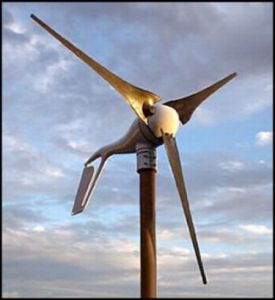
Ok, so till date we were so consciously looking for an alternative to fossil fuels that we actually overlooked the hazards that such methods could possibly cause. One such important issue is about the micro wind turbines, designed to suit the cities. The ‘oh so good’ alternative for generating electricity actually has the potential of increasing the carbon footprints of any environmentally conscious city household where it might be installed.
A study by The Building Research Establishment Trust (BRE trust) on the performance of wind turbines in the cities like Manchester, Lerwick and Portsmouth revealed that the weak wind and turbulence can make turbines produce so much carbon dioxide that it possibility of paying it back is nullified.
Apart from the energy spent in the manufacturing process of such units using aluminium, steel, fibreglass and copper, the transportation of the units to the site and its maintenance thereafter (due to weak and turbulent wind in the built up areas) is also likely to increase the carbon footprints of the turbines which were actually perceived to be environmentally friendly.
The CO2 emissions in the manufacture of the turbines is so wide that in the best cases it would be about 180 kg and in the worst case, about 1,444 kg! Not to discuss the CO2 emissions caused during delivery, installations and maintenace, which could happily increase the carbon footprint form 18 kg to 147 kg in about 20 years of micro wind turbine’s life time.
The study suggests that the likelihood of micro winds being a success in the city is dim. When compared with open and windy areas like Wick in Northern Scotland, where the output is likely to be about 3000 KWh per year, it is only 150KWh per year in a city like Manchester (That means only 2% of the total energy need of an average house)
The carbon payback in coastal areas is generally payable within a year and in worst situations maximum by seven years but in cities, it is likely that the carbon footprint could never actually be paid back.
There is a word of caution by Martin Wyatt, CEO of the BRE trust, “Small windmills may work in the outskirts of Wick, but the current generation do not work well enough in built-up areas. People need more information to ensure they are not doing the wrong thing”.
Via: The Raw Feed




